It was the pressing need to reclaim our narrative, which as many of you are aware was being largely told by non-Rwandans. To date any mention of Rwanda is closely followed by the word genocide and, as vital as this is to our history, it is not our only experience.
— Louise Umutoni.
IN 2009, The New Yorker published a short piece titled “Four Essential Books on Rwanda.” It was written by Philip Gourevitch, the author of We Wish to Inform You That Tomorrow We Will Be Killed with Our Families: Stories from Rwanda. Among the five books on Gourevitch’s list, there isn’t a single book by a Rwandan. What is even more troubling is Gourevitch’s complete lack of awareness that there is something odd about that.
“I would say that (other than my own, of course) the most interesting current books on Rwanda are the French reporter Jean Hatzfeld’s trilogy,” he writes, before going on to name Hatzfeld’s Life Laid Bare, Machete Season and The Antelope’s Strategy, and then Adrian Nicole LeBlanc’s Random Family.
“The story of Rwanda,” he continues, in a declaration that is more reductive than explanatory, “is, of course, inextricably entwined with that of Congo at this point, and the most fascinatingly observed account I have read so far of the wars and rebellions that have swept across that vast country next door to Rwanda, is again by a European…The Rebels’ Hour by Lieve Joris.”
Gourevitch’s list draws attention to a serious, familiar problem. Literary markets, culture, and institutions are not evenly spread across Africa, and as a result, for some parts of the continent, what circulates globally as knowledge about such gaps is created entirely by the Western world. The most internationally visible literary writing on Rwanda comes from non-Rwandans—most notably two haunting essays in Granta: “The Rainy Season” and “Where is Kigali?” by Channel 4 News International Editor Lindsey Hilsum. And they continue to be about mostly the genocide of 1994 and its aftermath.
Scholastique Mukasonga’s international success has been a great step in the right direction. In 2012, Archipelago Books published her novel Notre Dame du Nil. The novel was awarded the Ahmadou Kouroma Prize and shortlisted for the 2016 International DUBLIN Literary Award. Translated into English by Melanie Mauthner as Our Lady of the Nile, Mukasonga’s novel depicts life in an all-girls school before the genocide, focusing on characters with different ethnic backgrounds, a microcosmic interrogation of the Rwandan psyche. But Mukasonga’s beautiful body of work remains an exception to the rule.
CREATING the conditions necessary for Rwandans to tell their own stories requires durable institutions. A literary prize is a great start. Validation of writers, publicity for writers’ works, monetary value for an under-remunerated art form, creation of a canon: these are some of the reasons why literary prizes are important. Established by Louise Umutoni—writer and media consultant and founder of Rwanda’s first publishing house, Huza Press—the Huza Press for Fiction is Rwanda’s first ever national prize for fiction.
“It’s important that we take an active role in discussing the issues that affect us,” she told Rwanda’s The New Times. We cannot wait for Western writers and academics to describe our situation or conceptualize solutions to our problems.”
Currently in its second year, with its 2016 longlist recently announced, the Huza Prize comes with $1,000 for the winner, $500 and publication in an anthology for the shortlisted writers, and workshops and mentorship from established writers including Ghana’s Taiye Selasi, Uganda’s Jennifer Nansubuga Makumbi, and Africa39 authors Malawi’s Shadreck Chikoti and Cote d’Ivoire’s Edwidge Dro. “Skill transfer is a vital part of this prize,” writes Umutoni in The Kigalian, “and this is facilitated through mentorship and workshops.”
Entries of 3,000 to 5,000 words are considered in English and French, and will from 2017 be considered in the Rwandan national language Kinyarwanda. From more than the fifty entries assessed in 2015, ten were shortlisted by the judges: Nigerian writer and publisher Richard Ali, Uganda’s Beverly Nambozo of Babishai-Niwe Poetry Foundation, and Shadreck Chikoti. The inaugural prize was co-won by Darla Rudakubana for “Of Fear and of Guilt” and Daniel Rafiki for “Versus,” both of whom presented their work at the 2016 Writivism Festival in Kampala, Uganda.
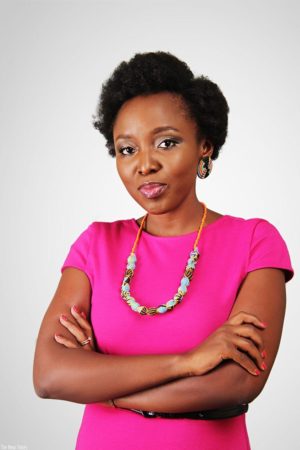 LOUISE UMUTONI is a towering figure in Rwandan arts. She set up Huza Press publishing house “to foster knowledge creation and dissemination in Rwanda.” A scriptwriter and radio presenter as well, she founded a network of female writers in Rwanda called Andika Ma, and was named, in 2008, the Best Arts and Culture Journalist at the Rwandan Golden Pen Awards.
LOUISE UMUTONI is a towering figure in Rwandan arts. She set up Huza Press publishing house “to foster knowledge creation and dissemination in Rwanda.” A scriptwriter and radio presenter as well, she founded a network of female writers in Rwanda called Andika Ma, and was named, in 2008, the Best Arts and Culture Journalist at the Rwandan Golden Pen Awards.
“We started Huza Press for the same reasons that many literary initiatives on the continent are started—to provide a platform for African voices and in our case Rwandan voices,” she reiterates in an Africa in Words piece. “We needed to see more stories about Rwanda from Rwandans.”
But in an interview with Publishing Perspectives in which she discusses the challenges she encounters in marketing literature in Rwanda, she highlights crucial gaps. “Rwanda’s reading culture is still underdeveloped in comparison to that in Kenya or Uganda and that’s largely due to Rwanda’s peculiar history. You can tell a lot about the reading culture by observing newspaper stands where the issues sold are as old as three months. In Kenya or Uganda, you see a lot more people reading even on the street.” The “peculiar history” she refers to includes Rwanda’s use of French as its official language after colonization by Belgium, before a more recent inclusion of English.
In a 2012 Warscapes conversation with Senegal’s Boubacar Boris Diop, Mukasonga emphasized this “peculiar history” and a hope for what might blossom into a trilingual literary canon:
Rwanda, it is necessary to remember, is not a former French colony. It was ignored in French-African literature. Rwandan intellectuals—they were rare—claimed to be historians, philosophers, even theologians, but certainly not writers. My books will awaken, I hope, some vocations. Rwanda, for as many economic reasons as political, has become officially Anglophone. But French has maintained its place, particularly in higher education we will see one day a bilingual French-English Rwandan literature, without forgetting Kinyarwanda, the national language spoken by all Rwandans.
In the years between 1994 and 2016 when its capital, Kigali, was named the most beautiful city in Africa by the UN, a lot has happened in Rwanda. The country has taken massive economic steps forward and is being hailed as “the Switzerland of Africa.” The country’s tourism industry is flourishing. Investment opportunities are opening up. The country is renowned for its unique emphasis on female leadership. It is the country with the biggest female majority in its parliament. Its capital houses Africa’s first comprehensive 4G. And in the midst of all these, concerns have been raised about political censorship and silencing of opposition groups. All these are stories that must be told by Rwandans, stories that already reflect in the literature they produce.
It might have just begun but Louise Umutoni’s and the Huza Press Prize for Fiction’s curating of a thematically-diverse, trilingual literary canon is an unimpeachable cause. What Rwandan literature lacks in consistency, it promises to make up for in rooted multiplicity. This prize’s establishment is a rummaging of the Rwandan literary identity, an insistence in exploring all its potentials. It is our hope that it becomes the foundation of a solid literary tradition.
Post image 1: via The Kigalian
Post image 2: via The New York Times


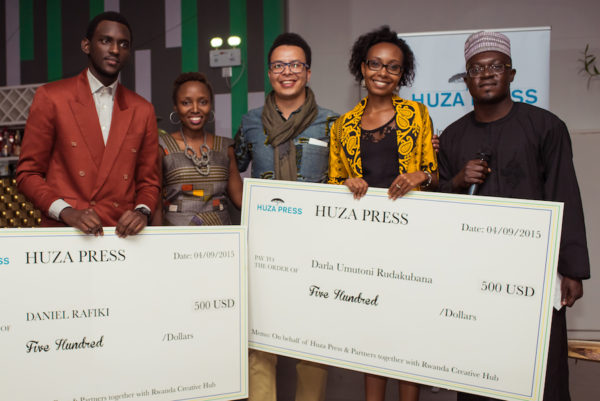


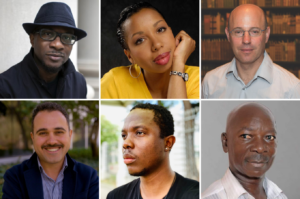
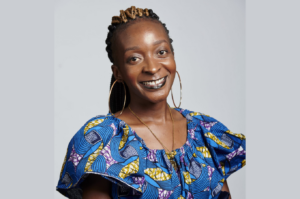
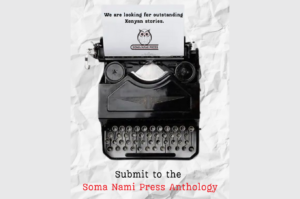
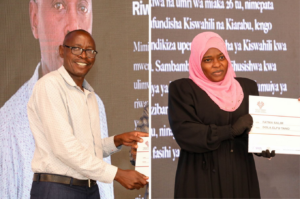

COMMENTS -
Reader Interactions